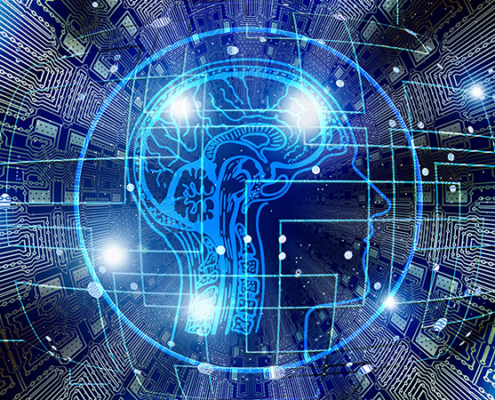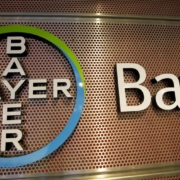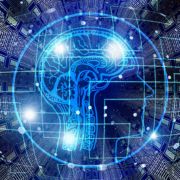Personal AI agents for health care
Personal AI agents for health care
By Niko Plaitakis, CultHealth
Artificial intelligence (AI) is transforming various domains of human activity, including health care. AI can assist in diagnosis, treatment, monitoring, and prevention of diseases, as well as in enhancing the quality and efficiency of health care delivery. However, AI also poses some challenges and risks, such as ethical, legal, and social implications, data privacy and security, and human-AI interaction.
Therefore, it is important to design AI systems that are human-centered, trustworthy, and aligned with the values and needs of the users. One promising direction is to develop personal AI agents that can act as intermediaries between patients and healthcare professionals (HCPs), facilitating communication, coordination, and collaboration.
What are personal AI agents?
Personal AI agents are intelligent software systems that can interact with humans through natural language, voice, gestures, or other modalities, and provide personalized services, information, or recommendations. Personal AI agents can be embedded in various devices, such as smartphones, tablets, wearables, or smart speakers, or accessed through cloud platforms or web applications. They can learn from the user’s preferences, behavior, context, and feedback, and adapt to the user’s needs and goals. Personal AI agents can also communicate and cooperate with other AI agents or systems, forming a network of distributed intelligence.
How can personal AI agents help patients?
Personal AI agents can help patients in various ways, such as:
- Providing health education and awareness, such as explaining medical terms, conditions, procedures, or medications, or providing tips and advice on healthy lifestyle, nutrition, or exercise.
- Monitoring and tracking the patient’s health status, symptoms, vital signs, medication adherence, or treatment outcomes, using sensors, wearables, or mobile apps, and alerting the patient or the HCP in case of anomalies or emergencies.
- Supporting the patient’s self-management and empowerment, such as reminding the patient of appointments, tasks, or goals, providing motivational feedback, or facilitating behavior change interventions.
- Enhancing the patient’s access and convenience, such as booking appointments, ordering prescriptions, or arranging transportation, or providing remote consultation, diagnosis, or treatment, using telemedicine or chatbot platforms.
- Improving the patient’s experience and satisfaction, such as providing emotional support, empathy, or companionship, or reducing the patient’s anxiety, stress, or pain, using conversational or gamified interfaces.
How can personal AI agents help HCPs?
Personal AI agents can also help HCPs in various ways, such as:
- Assisting in clinical decision making, such as providing diagnosis, prognosis, or treatment suggestions, based on the patient’s data and medical knowledge, or identifying potential risks, errors, or complications, using machine learning or expert systems.
- Enhancing the HCP’s efficiency and productivity, such as automating routine tasks, such as documentation, billing, or scheduling, or optimizing workflows, such as triaging, prioritizing, or delegating cases, using natural language processing or optimization algorithms.
- Facilitating the HCP’s learning and development, such as providing updated information, guidelines, or best practices, or offering feedback, coaching, or mentoring, using knowledge bases or recommender systems.
- Supporting the HCP’s collaboration and coordination, such as enabling communication, information sharing, or consultation, among different HCPs, teams, or organizations, or integrating data from different sources, such as electronic health records, laboratory tests, or imaging, using communication or data integration platforms.
- Improving the HCP’s well-being and satisfaction, such as reducing the HCP’s workload, stress, or burnout, or enhancing the HCP’s autonomy, creativity, or recognition, using adaptive or interactive interfaces.
What are the benefits and challenges of personal AI agents?
Personal AI agents can offer many benefits for both patients and HCPs, such as:
- Improving the quality and outcomes of health care, by providing accurate, timely, and personalized information, services, or interventions, based on data and evidence.
- Reducing the costs and resources of health care, by optimizing the use of human, material, or financial resources, and avoiding unnecessary or inefficient actions or processes.
- Increasing the accessibility and equity of health care, by reaching more people, especially those who are underserved, isolated, or marginalized, and providing affordable, convenient, and inclusive solutions.
- Strengthening the relationship and trust between patients and HCPs, by enhancing the communication, understanding, and empathy, and respecting the values, preferences, and goals of each party.
- Empowering and engaging both patients and HCPs, by enabling them to take more active and informed roles in their own health and care, and supporting their autonomy, motivation, and satisfaction.
However, personal AI agents also pose some challenges and risks, such as:
- Ensuring the reliability and validity of personal AI agents, by verifying the accuracy, completeness, and timeliness of the data, algorithms, and results, and addressing the issues of bias, uncertainty, or error.
- Protecting the privacy and security of personal AI agents, by safeguarding the confidentiality, integrity, and availability of the data, systems, and users, and preventing unauthorized access, misuse, or breach.
- Regulating the accountability and responsibility of personal AI agents, by establishing the standards, norms, and rules for the design, development, deployment, and evaluation of the AI systems, and determining the roles, rights, and obligations of the stakeholders.
- Managing the ethical and social implications of personal AI agents, by assessing the potential benefits and harms, risks and opportunities, values and trade-offs, and conflicts and dilemmas, of the AI applications, and ensuring the respect, fairness, and justice for the users and the society.
- Balancing the human and AI roles and interactions, by defining the boundaries, expectations, and feedback mechanisms, and fostering the collaboration, complementarity, and trust, between the human and the AI agents.
Personal AI agents are a promising technology that can help patients and HCPs in the future, by providing personalized, intelligent, and interactive services, information, or recommendations. They can improve the quality, efficiency, accessibility, equity, and satisfaction of health care, and empower and engage both patients and HCPs.
However, personal AI agents also raise some challenges and risks, such as reliability, validity, privacy, security, accountability, responsibility, ethics, and social impact, and require careful design, development, deployment, and evaluation, to ensure the human-centeredness, trustworthiness, and alignment of the AI systems. Therefore, it is important to involve both patients and HCPs, as well as other stakeholders, such as researchers, developers, regulators, or policymakers, in the co-creation, co-design, and co-evaluation of personal AI agents, and to foster a culture of collaboration, learning, and innovation, for the future of health care.
 |
Niko Plaitakis is executive VP, director of experience/technology at CultHealth. |










